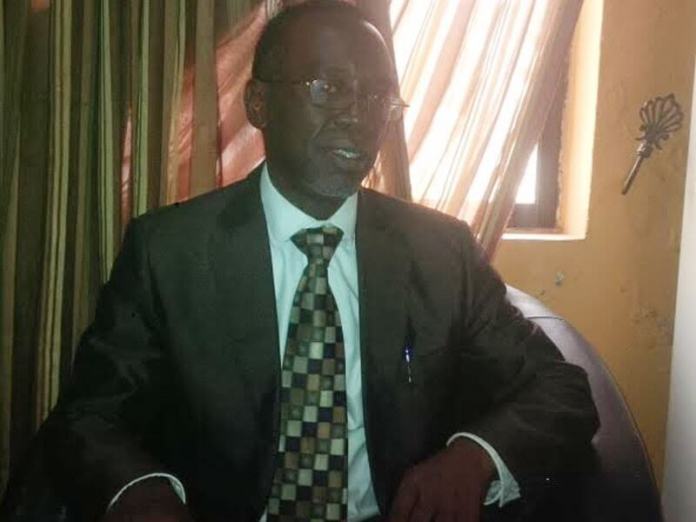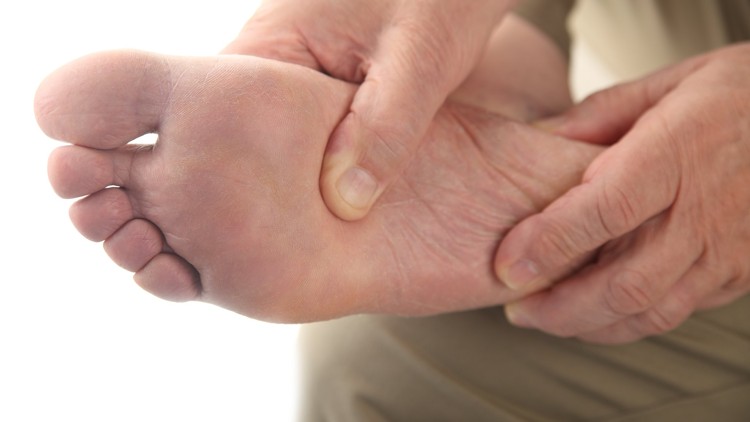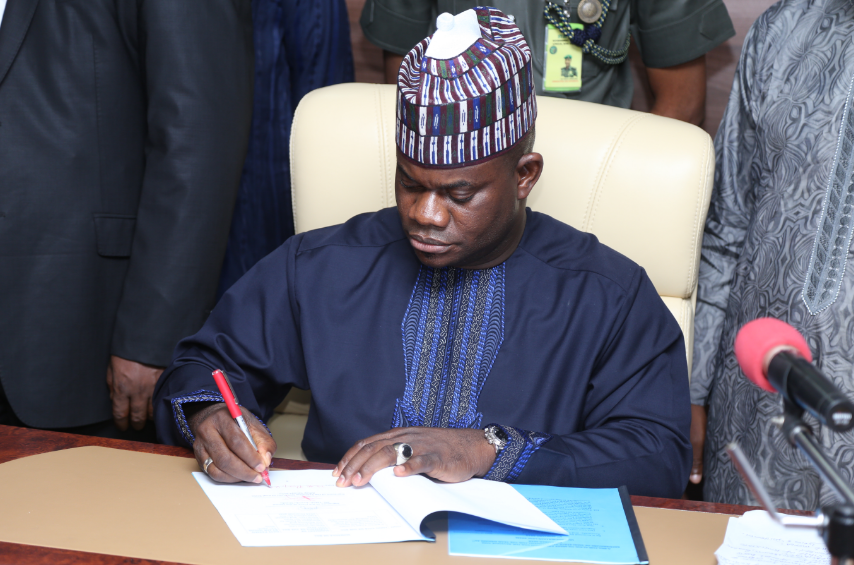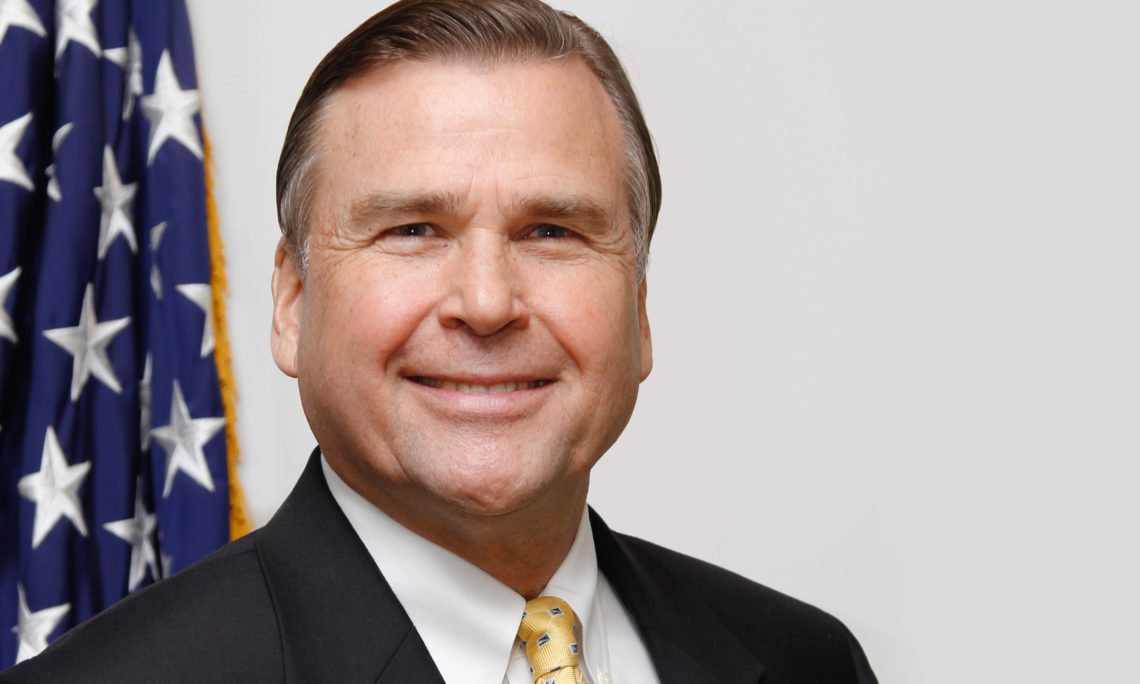Folukemi Ogundiran
Folukemi is a trained journalist, a writer, a social media…
Herbal medicine can be dated back to the early time in human history, but despite the long duration of the existence of the alternative therapy, Nigerians are yet to get a complete grasp of it, giving it the seriousness it deserves.
Prof Olobayo Kunle, the Acting Director General of the National Institute for Pharmaceutical Development spoke on the state of herbal medicine in Nigeria and the efforts of the institute to provide unorthodox remedy to some prevalent. Read the interview excerpt below:
Your organisation seems to be obscure to most Nigerians. What is NIPRD and what does it stand for?
National Institute for Pharmaceutical Research and Development (NIPRD) took off in1989 and it is the only research institute in Nigeria and possibly in Africa which is strictly dedicated to the manufacture of drugs. Over the years, the institute has carved a niche for itself in the area of plant medicine development, which is herbal medicine development. NIPRD does more than development of herbal medicine, it is into synthetic medicine, pharmaceutical raw material like starch, etc.
Niprisan, the drug for sickle cell is synonymous to NIPRD. Could you share light on this?
It was commercialised and the first in the country which started from scratch in Nigeria. Niprisan can be obtained by patients from NIPRD. It isn’t available anywhere, unfortunately. I can assure you that in the next few months, it will be back into the market.
What are the setbacks mitigating against Niprisan being on market shelves?
We want to avoid the pitfalls of government agencies getting involved in businesses. If we had funding, we would have produced more. However, we believe that Niprisan and any of our Research and Development interest will be best served if the private sector leads the charge. So funding, yes, but also ensuring that the necessary steps that the drug and any other product we have, gets to a wider audience and which a government agency like ours can afford. One of the challenges is that of perception.
A research and development institution by mandate, lacks the ability and funding to be able to get its own product into the market for everybody’s use. What’s the total budget of NIPRD and what’s the manpower to be able to distribute Niprisan all over Africa which was the goal. They are to develop products up to the point where an investor takes a look at the products and invest in it.
NIPRD was established strictly for research and development but has been seen delving into herbal medicine. What are the advantages this portends for Nigerians?
Fantastic business. You wouldn’t believe that some capsules Nigerians take are called herbal medicine from South Africa, China or India. And they actually contain things as basic as onions and garlic. They just deodorise and package and people take them. These are plants we grow in this country, and Nigerians are buying them at imported prices. Most Nigerian elites today take one form of traditional medicine or the other, mostly imported. The man in the rural area is taking herbal medicine in his own form.
Why is this so despite the huge patronage?
This is because the training of people who eventually go into the pharmaceutical manufacturing industry are engineers, pharmacists, etc and the totality of that group have not been trained to produce herbal medicines. Our schools are not training people on the technique for producing herbal medicines. People like us learnt on the job and today we understand it and are experts in it but that is not how we came out.
What does it take to start the production of herbal medicines?
To produce herbal medicines, especially for our pharmaceutical manufacturing industries, some serious re-tooling is required and there are equipments not in use now that have to be introduced. So they need to bring in new facilities; they need to purchase new equipments and they need manpower. Most importantly, it is also intimidating to think of sourcing raw materials.
Unfortunately, because the big and established manufacturers have not gone in to it, over the years, there has been a vacuum. Attempt by small producers to fill the gap has been challenging. That again discourages serious persons from coming in. Until that space is sanitised, they will be reluctant to invest their funds. It is a gap that NIPRD must do something to take care of.
If this be the case, why don’t you liaise with practitioners of herbal medicine. Are they not in the know of what you do?
The Board of NIPRD has a herbal traditional medicine practitioner as member and this is statutory. This creates the permanent link. What we have done over the years is to relate with their various associations, attend their meetings. We are also open to receiving individuals who have things to offer.
NIPRD has been able to produce seven drugs apart from Niprisan. Are the drugs ready? And what has been some of the challenges?
The products are good to go. We have done all the lab work for products like malaria. For some, we have even done the clinical work. For Ebola, which of course is the most exciting amongst the products we mentioned, is the difficulty in carrying out clinical trials. So we have not tested the product clinically. There is a practical problem with testing Ebola. It is one of the few drugs that are tested in an epidemic situation. Ordinarily, it will be unethical to try a drug when people are dying of it. Secondly, there is the challenge of completing the lab work. We don’t want to handle something as dangerous as the Ebola Virus in an environment that is not qualified for it. So to deal with a very dangerous material like that, the level of laboratory needed is not available in Africa.
How do you hope to source for funding, bearing in mind that this happens to be the greatest challenge faced by NIPRD?
When we talk about funding, I look at it in three perspectives. There is a straight line whereby you think of budget and monthly allocation and that has not been very good for us. If we are to depend on that, we would continue to complain. An alternative to that for us is to find ways of generating funds. By design and mandate, we are not fund-generating. Research by its nature is just consumption. Of course, once in a while, you’ll hit one successful path like NIPRD did with Niprisan.
We intend to also focus on herbals medicine in our clinic. We will channel some of the resources that comes our way to strengthen that clinic to truly become a destination for the people there so that we can serve their needs. From there we can get funds to be able to meet our basic necessities for things like power.
The third avenue is to collaborate with international partners to apply for research grants for equipment we require to do science. That’s another way we intend to supplement our efforts.
Culled From: This Day Live
Folukemi Ogundiran
Folukemi is a trained journalist, a writer, a social media enthusiast. She believes being happy and fulfilled is not a fairy tale and she is dedicated to helping others find theirs.







